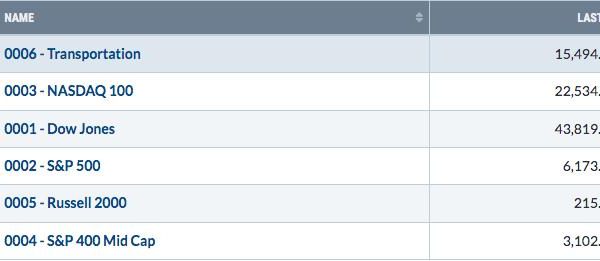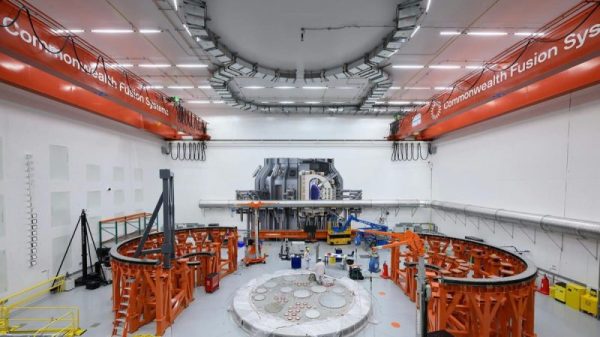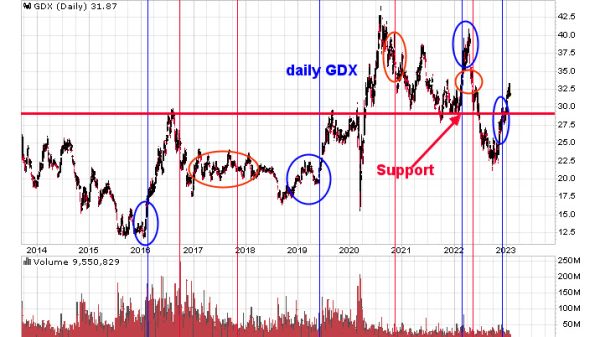House Republicans have vowed to take a long, methodical approach to investigating President Biden over potential wrongdoing.
“I want this to take a long time. I really do,” Rep. Marjorie Taylor Greene (R-Ga.), a member of the House Oversight and Accountability Committee, said in a recent interview.
“We’re just going to keep plowing ahead, doing our work,” Rep. Jim Jordan (R-Ohio), chairman of the Judiciary Committee, told reporters Thursday.
But there are whispers from some rank-and-file Republicans that their leadership got too fixated on these investigations, losing focus on processing the government funding bills from the House Appropriations Committee.
That’s now left the House GOP certain to face the blame if there’s a shutdown of the federal government starting next Sunday — unless they can pull off a fast legislative trick.
Moreover, when the House Oversight Committee gathers Thursday for its first formal hearing on the impeachment inquiry, the shadow of the looming shutdown will blot out any spotlight the GOP hopes to shine on Biden — leaving the hearing to play at least second fiddle to the ongoing machinations to fund the government.
“We allowed ourselves to basically get so distracted with all the other shiny objects that we didn’t actually get ahead of our real job, which is to be appropriators,” Rep. Cory Mills (R-Fla.) told reporters after leaving an emergency GOP meeting late Thursday.
There’s a certain irony for House Speaker Kevin McCarthy (R-Calif.) to have his own members blaming the impeachment focus for the looming shutdown.
After taking a longer-than-usual 46-day legislative break in the late summer, McCarthy’s first day back in the Capitol, Sept. 12, turned into a frenzy as he unilaterally announced that the Oversight, Judiciary and Ways and Means committees were entering an official impeachment inquiry.
His rank-and-file Republicans saw the move mostly as a ploy to try to quell angst among far-right lawmakers ahead of the Sept. 30 deadline to keep federal agencies funded. Those ideological warriors dismissed the impeachment move as something otherwise overdue and then ratcheted up their demands on cutting government spending.
Rather than focusing on impeachment, the far-right faction of 10 to 15 Republicans has instead paralyzed the House and set in motion a convoluted strategy with little hope for success.
Mills, a freshman who has not previously been part of the far-right troublemaking crowd, declared “I blame leadership” because the entire summer drifted away without resolving this mess.
“We had the time to do this. We had the entire month of August; we had all of September,” he said.
The speaker is fond of defending his leadership style by saying that he allows for a wide-open process that would allow for plenty of oversight investigations and legislation. “People can actually have a say. It’s not one way or the highway,” McCarthy told reporters Tuesday morning.
McCarthy’s allies, in a briefing with reporters on Friday, suggested the negotiating process with fellow Republicans took so many months because so many newcomers had never been in the majority and didn’t understand how government funding works.
“This was a new concept to some members‚” said Rep. Patrick T. McHenry (R-N.C.), who was McCarthy’s lead negotiator on the debt-and-budget deal with Biden administration officials earlier this year.
Still, House GOP leaders set a rather lackluster overall timing and pacing for the summer and early fall, given that this funding showdown has always loomed large for McCarthy. In early January, arch conservatives forced him through 15 rounds of voting and obtained many concessions on the appropriations process before allowing him to become speaker.
Once the deal with Biden in late May set a two-year framework for spending, the House seemed poised to get moving on the 12 spending bills.
Then the far-right crowd opposed those spending levels as too high, using the narrow, four-vote margin to tie the House up in knots by defeating procedural votes. Instead of finishing up those talks in the early summer, House Republicans drifted into a series of unrelated distractions.
The last couple weeks of June were dominated by McCarthy’s decision to force a censure vote against Rep. Adam B. Schiff (D-Calif.) for his leadership of the 2019 impeachment effort of ex-president Donald Trump. And Rep. Lauren Boebert (R-Colo.) forced a vote on her resolution calling for the immediate impeachment of Biden, which prompted a wild, expletive-laden shouting match between Boebert and Greene over who should get credit for pushing impeachment.
Republicans blocked that resolution and referred it to committees on June 23, and later that day, the House broke for a longer-than-usual 17-day recess over the Fourth of July break.
In mid-to-late July, the House floor was dominated by debate over the annual Pentagon policy bill, for which conservatives won major concessions on social culture war issues. In the last week of July, the House approved the usually noncontroversial funding outline for the Department of Veterans Affairs and military construction projects.
However, facing right-wing objections, McCarthy pulled consideration for the also usually noncontroversial bill to fund the Department of Agriculture. That left 11 of the 12 government funding bills languishing.
The House then adjourned for its lengthy summer break.
Put another way, from June 24 through Sept. 11, the House was in session just 11 days. And after returning to the Capitol this month, Republicans spent their first week focusing on whether Biden should be impeached.
Mills believes leadership just failed in planning for the broad spectrum of issues at hand, letting things like censure and investigations distract their attention from the most basic acts of governance.
“Unfortunately, not everyone can walk and chew gum at the same time. So we get pulled into really key discussions about certain policy things, or we get pulled into impeachment discussions,” Mills said in a follow-up interview.
Jordan, who chairs the committee that will specifically examine any allegations of preferable treatment of Biden by the Justice Department, dismissed the notion that this year’s pace of handling appropriations is different than previous sessions. With one bill already approved, nine others have cleared the committee, and the Rules Committee met this weekend to set up debate on four more next week and beyond.
“That’s fine, we’ve got to get the votes to get them to the floor,” Jordan said.
Of course, to meet the latest demands from conservatives, Republicans need to find roughly $60 billion in new cuts to those funding bills.
All this drama, with the likely “shutdown countdown clocks” on cable news, might overshadow the impeachment investigation’s formal launch on Thursday.
Top Republicans are, so far, suggesting they will not move as quickly as their predecessors did. In 1998, House Republicans, joined by 31 Democrats, voted to formally launch the Bill Clinton impeachment on Oct. 8, and less than 2½ months later, they voted to impeach the president.
In 2019, House Speaker Nancy Pelosi (D-Calif.) declared an impeachment inquiry had begun on Sept. 24, the full House formally voted to approve the inquiry Oct. 31 and President Trump was impeached in December.
Quite a few Republicans remain reluctant to impeach Biden, believing that evidence doesn’t show the president’s involvement in his family’s business dealings, and at least one, Rep. Ken Buck (R-Calif.), labeled it completely baseless. So GOP investigators need to proceed slowly and try to accumulate more evidence.
“There’s a lot of things that we need answers to and we need to get those answers before whatever the next step is. It’s going to be a process,” Rep. Jason T. Smith (R-Mo.), chair of the Ways and Means Committee, said in a recent interview.
Greene wants an expansive investigation into allegations of prosecutorial misconduct beyond the initial focus of examining the president’s family’s financial dealings.
“The second goal is to cast a wide net into every department and agency to find all the people that covered this up,” she said.
Democrats view this approach as the natural outcome of an investigation that has failed. “They obviously want to take as much time as possible to find evidence that doesn’t exist,” said Rep. Jamie Raskin (Md.), the top Democrat on the oversight committee.
With those GOP holdouts, Raskin added, “They’ve got to take time to see if they can concoct some argument.”
Mills said that he supports the impeachment inquiry, and that he supports all the other investigations into the Biden administration. He just thinks that his leadership did a poor job of “all this juggling” that needs to happen to ensure things like government shutdowns are avoided.
As a former member of the Army’s 82nd Airborne Division, Mills learned the concept of “windows and mirrors” when it came to leadership.
“When things are done correctly, you look through the window and you look at everyone else who made it happen,” he said. “When things fail, as a good leader, you look in the mirror because it’s ultimately on you.”





























